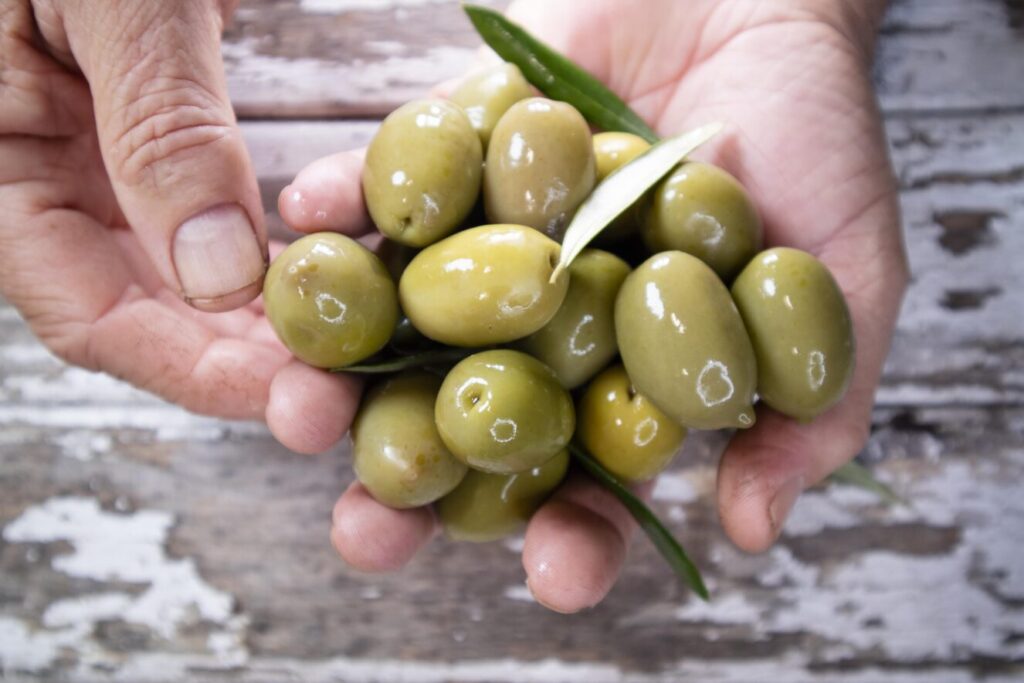
Bitter foods may be the missing link to longevity, offering unique health benefits from improved digestion to enhanced detoxification, and their impact on inflammation, metabolism, and overall well-being.
Bitter flavours often get a bad reputation. Many of us naturally avoid them, preferring sweet, salty, or savoury tastes instead. Years of excessive consumption of refined sugars, unhealthy fats, and chemical additives has also disrupted our natural ability to enjoy the true flavours of whole foods, including bitterness. But did you know that our bodies actually crave bitter compounds for healthy digestion, detoxification, and overall well-being?
For centuries, traditional medicine systems like Ayurveda, Traditional Chinese Medicine and herbalism have emphasised the importance of bitter herbs in maintaining health. Holistic health practitioners have long believed that the high mineral content of bitter herbs helps cleanse the body of mucus, toxins, and acidic waste, restoring natural balance and fighting disease at its root cause.
This article explores the power of bitter herbs, their health benefits, and how incorporating them into your diet can promote longevity, organ function, and detoxification. By the end, you might just be inspired to embrace the bitter side of life
Introduction: The Overlooked Secret to a Long, Healthy Life
In the pursuit of longevity and vibrant health, most people are familiar with the importance of consuming antioxidants, fiber, healthy fats, and lean proteins. However, there is one group of foods that often gets overlooked in mainstream health discussions: bitter foods.
Bitter foods, which include arugula, dandelion greens, grapefruit, and dark chocolate, have been used for centuries in various cultures for their medicinal properties. Despite their unique and sometimes sharp taste, these foods offer powerful health benefits that may help promote longevity, support digestive health, and protect against chronic diseases. While bitter foods are often underappreciated in modern diets, emerging research suggests that they could be the key to unlocking better health and extending lifespan.
In this article, we will explore the science behind bitter foods, their specific health benefits, and how they may help improve key bodily functions such as digestion, metabolism, and inflammation control. We will also discuss why the traditional preference for sweet flavors in our modern diets has led to a decline in the consumption of bitter foods—and how reintroducing them can lead to profound health benefits.
By the end of this article, you will have a deeper understanding of why bitter foods should be a staple in your diet and how they might be the missing piece in the puzzle of healthy aging and longevity.
The Okinawan Diet: A Blueprint for Longevity:
The island of Okinawa is renowned for its inhabitants’ exceptional longevity, with a significant number of centenarians. Researchers have delved into the secrets behind this remarkable phenomenon, highlighting the Okinawan diet as a key player. This traditional dietary pattern incorporates over five servings of fruits and vegetables daily, with an emphasis on heart-healthy fish over meat. The Okinawan phrase “nuchi gusui,” meaning “let food be your medicine,” encapsulates the essence of their approach. The diet’s inclusion of sweet potatoes, bitter melon, carotenoid-rich marine foods like seaweeds, green leafy vegetables, and fruits, reduces inflammation and oxidative stress, effectively combating aging processes. Notably, the traditional Okinawan diet is both nutritionally dense and calorie-poor, with sweet potatoes replacing white rice as the staple until the 1960s.
Food as Medicine: Unleashing the Healing Potential:
In recent years, the concept of “food as medicine” has gained traction, with increasing recognition of the profound impact of nutrition on overall health. Medical professionals are now prescribing specific diets to address various health conditions, leading to improved well-being and decreased healthcare costs, particularly for individuals lacking access to healthy food options. This shift towards using food as a therapeutic tool aligns with the Okinawan philosophy of nuchi gusui, highlighting the transformative potential of food in preventing and treating diseases.
Connecting the Threads: The Intersection of Philosophies:
While the Okinawan diet and the “food as medicine” movement approach the healing power of food from different angles, they share common ground. Both emphasize the importance of consuming a diverse array of fruits, vegetables, and fish while limiting the intake of processed meats and calorie-dense foods. This convergence underscores the significance of a plant-based diet rich in antioxidants and anti-inflammatory compounds, which play a vital role in preventing chronic diseases and promoting longevity
The Science Behind Bitter Foods and Their Role in Longevity
Bitter Receptors: How Our Bodies Respond to Bitter Flavors
Bitter foods owe much of their distinct taste to specific compounds that trigger the bitter receptors on our tongues. These receptors are part of a broader system in our bodies that helps us detect toxins, which historically would have signaled harmful substances. As a result, the bitter taste is often associated with caution, but recent studies have shown that many bitter compounds are, in fact, beneficial rather than harmful.
Bitter Taste and Digestive Health
One of the primary reasons why bitter foods contribute to longevity is their positive effect on digestion. Many bitter compounds stimulate the bitter taste receptors not only in the mouth but throughout the gastrointestinal system. This stimulation can increase the production of digestive enzymes and bile, which are crucial for the breakdown of fats and nutrients.
Bitter foods can also promote gastric acid production, helping to improve overall digestion and reduce the risk of indigestion, bloating, and acid reflux. For example, dandelion greens are known to support liver health and detoxification processes by promoting bile flow. Regular consumption of bitter foods can help ensure that your digestive system functions efficiently, leading to improved nutrient absorption and overall vitality Bitter Foods and the Gut Microbiome
Emerging research suggests that bitter foods can influence the gut microbiome, which plays a crucial role in overall health and longevity. The gut microbiome is a diverse community of bacteria that influence digestion, immune function, and even mental health. Certain bitter foods can positively alter the balance of the gut microbiome, promoting the growth of beneficial bacteria while reducing harmful strains.
For instance, bitter melon and kale have been shown to encourage the growth of beneficial gut bacteria, which in turn supports healthy digestion and a balanced immune response. An optimized gut microbiome is linked to better metabolism, lower inflammation, and a reduced risk of chronic diseases like obesity, diabetes, and heart disease.
Bitter Foods and Their Role in Inflammation Control
Chronic inflammation is a key driver of many age-related diseases, including Alzheimer’s, arthritis, and cardiovascular diseases. One of the key properties of bitter foods is their ability to reduce inflammation in the body. For example, compounds in artichokes and turmeric have powerful anti-inflammatory effects that can help mitigate chronic inflammation over time.
Bitter foods also help regulate the production of pro-inflammatory cytokines, proteins that are involved in the body’s immune response. By reducing inflammation, bitter foods not only help prevent disease but also contribute to better joint health, heart health, and cognitive function as we age Top Bitter Foods That Promote Longevity
Now that we understand the science behind bitter foods, let’s take a closer look at some of the top bitter foods that should be part of your diet for longevity.

1. Bitter Melon
Bitter melon is a tropical fruit that has been used in traditional medicine for centuries. It contains bioactive compounds like charantin, which may help regulate blood sugar levels and improve insulin sensitivity. This makes it particularly useful for preventing and managing type 2 diabetes, a chronic condition that significantly affects longevity.
Bitter melon also contains antioxidants that can help protect cells from oxidative damage, a leading cause of aging and disease. The fruit has been linked to improved digestion, better liver function, and enhanced detoxification.
How to incorporate bitter melon into your diet:
- Stir-fry it with garlic and onions
- Add it to smoothies for a unique flavor
- Use it in soups and stews
2. Arugula
Arugula is a leafy green with a peppery, bitter taste. It is rich in vitamins A, C, and K, as well as minerals like calcium, magnesium, and potassium. These nutrients are vital for maintaining strong bones, healthy skin, and proper immune function.
Arugula is also a great source of glucosinolates, compounds that have been shown to have anti-cancer and anti-inflammatory properties. Additionally, the bitter compounds in arugula help stimulate bile production, which supports liver detoxification and promotes digestive health.
How to incorporate arugula into your diet:
- Toss it in salads for a peppery kick
- Add it to sandwiches and wraps
- Use it as a topping for pizza or pasta
3. Dandelion Greens
Dandelion greens are perhaps one of the most powerful bitter foods, packed with nutrients like vitamins A, C, and K, as well as iron and calcium. Dandelion is a natural detoxifier, supporting liver function and helping the body eliminate toxins. The bitter compounds in dandelion greens promote bile production, which aids in fat digestion and nutrient absorption.
Dandelion greens have also been shown to have anti-inflammatory effects, making them a valuable food for preventing chronic diseases related to inflammation.
How to incorporate dandelion greens into your diet:
- Sauté them with garlic and olive oil
- Add them to smoothies
- Use them as a base for salads
4. Grapefruit
Grapefruit is a citrus fruit known for its tart and bitter taste. It is rich in vitamin C, antioxidants, and fiber, which help support the immune system, protect against oxidative stress, and aid in digestion.
The bitter compounds in grapefruit, particularly naringin, have been found to enhance the body’s ability to metabolize fats and regulate blood sugar levels. This makes grapefruit an excellent addition to a weight loss regimen and a protective food against metabolic disorders.
How to incorporate grapefruit into your diet:
Add it to salads for a refreshing twist
Eat it fresh for breakfast
- Add it to salads for a refreshing twist
- Drink fresh grapefruit juice (without added sugar)
5. Kale

Kale is a dark leafy green that boasts an earthy, slightly bitter flavor. It is rich in fiber, vitamin K, and antioxidants, making it a powerful food for supporting heart health and reducing inflammation.
Kale also contains glucosinolates, which have been shown to have anti-cancer effects. Regular consumption of kale can help reduce the risk of various types of cancer and support overall longevity.
How to incorporate kale into your diet:
- Add it to smoothies for a nutrient boost
- Make kale chips by baking them with olive oil and sea salt
- Toss it into salads, soups, or stews
How Bitter Foods Support Healthy Metabolism
Improving Insulin Sensitivity
Many bitter foods, such as bitter melon, grapefruit, and dandelion greens, have been shown to improve insulin sensitivity. This is crucial for maintaining healthy blood sugar levels and preventing conditions like type 2 diabetes. By reducing insulin resistance, bitter foods can help maintain metabolic balance, which is essential for healthy aging and longevity.
Enhancing Fat Metabolism
Bitter foods stimulate bile production, which helps the body break down and digest fats. This can prevent the accumulation of fat in the liver and improve fat metabolism. Foods like bitter melon and arugula help ensure that fat is efficiently processed and eliminated from the body.
Bitter Foods and Their Role in Mental Health
Cognitive Benefits of Bitter Foods
It’s well-known that maintaining a healthy brain is key to longevity. As we age, cognitive function can naturally decline, but a well-balanced diet rich in nutrients and antioxidants can help slow or even reverse this process. Interestingly, bitter foods can play an essential role in promoting brain health and enhancing cognitive performance. Many bitter foods, such as dark chocolate and grapefruit, are packed with antioxidants that protect brain cells from oxidative damage, which is a significant contributor to cognitive decline and diseases like Alzheimer’s.
Bitter compounds, especially those found in dark chocolate (which contains compounds like flavonoids and theobromine), have been shown to stimulate the production of brain-derived neurotrophic factor (BDNF), a protein that supports the growth and survival of brain cells. Higher levels of BDNF are associated with improved memory, learning, and neuroplasticity—the brain’s ability to form new connections and adapt to new experiences. Regular consumption of bitter foods, such as dark chocolate and even bitter greens like kale or arugula, can therefore support long-term cognitive function and help maintain mental sharpness as we age.
Reducing Stress and Improving Mood
Interestingly, bitter foods may also contribute to better emotional well-being. Research suggests that bitter compounds have an impact on the dopaminergic system, which controls the release of neurotransmitters like dopamine and serotonin. These neurotransmitters are involved in mood regulation, and their balance is critical for preventing conditions like depression and anxiety.
Certain bitter foods, like turmeric (which contains curcumin) and dark chocolate, are known to enhance the production of serotonin in the brain. Serotonin is often referred to as the “feel-good” neurotransmitter because it promotes feelings of happiness and contentment. Consuming foods that boost serotonin levels can help reduce the risk of mood disorders and contribute to overall emotional stability, particularly as we age.
Bitter Foods and Their Anti-Aging Properties
One of the major benefits of bitter foods is their ability to slow the aging process on a cellular level. Foods like green tea, artichokes, and grapefruit contain powerful antioxidants that protect cells from the damaging effects of free radicals, unstable molecules that can cause oxidative stress and damage DNA, proteins, and lipids in the body.
Over time, oxidative stress accelerates the aging process and is linked to various chronic diseases, including cancer, cardiovascular disease, and neurodegenerative disorders. By regularly consuming bitter foods that are rich in antioxidants, we can reduce the damaging effects of oxidative stress and promote cellular health, which helps slow down the aging process.
Furthermore, certain bitter compounds, such as those found in bitter melon and dandelion, have been shown to activate autophagy, a process in which the body cleans out damaged cells and regenerates new, healthy ones. Autophagy is a crucial mechanism in maintaining youthfulness at a cellular level, as it helps remove dysfunctional proteins and organelles that contribute to aging.
How to Incorporate Bitter Foods Into Your Daily Diet

Despite their health benefits, the bitter taste can be off-putting for many people. However, there are plenty of ways to incorporate these nutrient-dense foods into your daily meals without overwhelming your taste buds.
1. Start with Small Amounts
If you’re not used to the bitterness of certain foods, it’s a good idea to start by incorporating small amounts into your diet. For example, you can begin by adding a handful of arugula or dandelion greens to your salads or smoothies. This allows your taste buds to adjust to the bitterness gradually.
2. Pair Bitter Foods with Sweet or Savory Ingredients
To balance the bitterness, try pairing bitter foods with sweeter or savory ingredients. For instance, you can pair grapefruit with a bit of honey or dark chocolate with almonds or berries to complement the bitterness while still enjoying its health benefits. Bitter greens like kale or spinach can be added to smoothies along with fruits like bananas, apples, or berries to create a sweet and refreshing drink that masks some of the bitterness 3. Use Bitter Foods as Natural Seasonings
Bitter herbs like rosemary, sage, oregano, and thyme are wonderful for adding flavor to your dishes without relying on salt or sugar. These herbs can be used in cooking to season meats, soups, stews, and even roasted vegetables. They provide a robust, earthy flavor that enhances the taste of the meal while offering health benefits.
4. Create Delicious Bitter Melon Dishes
Although bitter melon might be a more acquired taste, it can be delicious when prepared properly. Try stir-frying bitter melon with garlic, onions, and a splash of soy sauce for a savory dish, or you can incorporate it into soups and curries. Another option is to juice it or blend it into smoothies, combining it with other fruits and vegetables to mask the bitterness.
5. Include Bitter Teas in Your Routine
Herbal teas made from bitter herbs like chamomile, dandelion root, and green tea can be an excellent addition to your daily routine. These teas are rich in antioxidants and have soothing properties that aid digestion and support detoxification. Drinking a cup of bitter tea in the morning or evening can provide you with a comforting way to reap the benefits of these foods.
6. Experiment with Bitter-Sweet Dishes
For those who find bitter flavors challenging, consider trying bitter-sweet dishes like dark chocolate with orange zest, or a grapefruit salad with avocado and almonds. These pairings help bring out the unique characteristics of the bitter foods while balancing them with complementary flavors.
The Global Impact of Bitter Foods on Longevity
Traditional Use of Bitter Foods Across Cultures
Across various cultures, bitter foods have been revered for their medicinal properties and their ability to promote health and longevity. For example, in India, bitter melon (or karela) is a staple in traditional diets, especially for managing blood sugar levels and improving overall health. It’s often used in curries, juices, and soups. Similarly, in China, bitter herbs like ginseng and licorice root have long been used in herbal remedies for their restorative properties, supporting longevity and vitality.
In the Mediterranean diet, bitter greens such as arugula and endive are integral components of meals. The combination of these foods with heart-healthy olive oil and fresh vegetables contributes to the region’s well-documented reputation for longevity. The Blue Zones—areas in the world where people live the longest, including Sardinia, Japan, and Costa Rica—all emphasize plant-based diets rich in a variety of bitter foods.
By embracing the power of bitter foods, we can connect with these traditional practices and integrate the longevity secrets that have been passed down through generations.
Conclusion:
Bitter foods, often underappreciated in modern diets, are now emerging as key players in the quest for longevity and overall health. From supporting digestion and metabolism to reducing inflammation and enhancing brain function, bitter foods pack a punch when it comes to their health benefits. The bioactive compounds found in bitter foods, such as antioxidants, flavonoids, and glucosinolates, work together to fight oxidative stress, detoxify the body, and promote healthy aging.
Incorporating these foods into your diet doesn’t have to be overwhelming. Start with small portions and experiment with pairing them with other ingredients to balance their intense flavor. The cumulative benefits of including bitter foods like bitter melon, arugula, kale, grapefruit, and dandelion greens can significantly enhance both your physical and mental well-mental well-being, supporting everything from liver health to brain function. These foods not only aid in digestion but also help regulate blood sugar levels, reduce inflammation, and protect against chronic diseases, providing a holistic approach to wellness.
By reintroducing these powerful foods into your diet, you can take an active role in supporting your long-term health and vitality. So, embrace the bitter side of life and harness the ancient wisdom that’s been passed down for centuries—your body will thank you in the long run.
Q&A Section:
Q: What are bitter foods, and why should we eat them?
A: Bitter foods are those with a sharp, sometimes unpleasant flavor, such as bitter melon, grapefruit, and kale. They offer a wealth of health benefits, including improving digestion, reducing inflammation, and supporting brain health, making them crucial for longevity.
Q: How do bitter foods help with digestion?
A: Bitter foods stimulate the production of digestive enzymes and bile, which enhance the breakdown of food and absorption of nutrients. They also support gastric acid production, promoting healthier digestion and reducing bloating and indigestion.
Q: Can bitter foods really help with inflammation?
A: Yes, many bitter foods, such as artichokes and turmeric, contain anti-inflammatory compounds that reduce chronic inflammation in the body, helping to prevent diseases like arthritis, heart disease, and even certain cancers.
Q: Are bitter foods beneficial for weight loss?
A: Absolutely! Bitter foods like bitter melon and grapefruit can help regulate blood sugar levels and improve insulin sensitivity, which are crucial factors in controlling weight and preventing obesity.
Q: Do bitter foods improve brain function?
A: Yes, compounds found in bitter foods, particularly dark chocolate, can enhance cognitive function by promoting the production of BDNF (brain-derived neurotrophic factor), a protein that supports brain health, memory, and neuroplasticity.
Q: Are bitter foods effective in detoxifying the body?
A: Bitter foods such as dandelion greens and bitter melon
stimulate liver detoxification and promote the elimination of toxins from the body. They support the body’s natural detox processes, helping to cleanse and rejuvenate the system.
Q: How can I start adding bitter foods to my diet?
A: Start by incorporating small amounts of bitter greens like arugula or dandelion greens into salads or smoothies. You can also try adding bitter melon to stir-fries, soups, or juices to get accustomed to the taste.
Q: What are some simple ways to reduce the bitterness of these foods?
A: Pair bitter foods with sweet or savory ingredients, such as honey, almonds, or avocados. Using citrus or olive oil can also help balance the bitter taste in dishes.
Q: Are bitter foods beneficial for mental health?
A: Yes! Certain bitter foods, like dark chocolate and turmeric, can enhance the production of serotonin and dopamine, neurotransmitters that help regulate mood, reduce stress, and promote overall emotional well-being.
Q: Can bitter foods prevent chronic diseases?
A: Bitter foods, with their powerful antioxidants and anti-inflammatory properties, have been shown to reduce the risk of chronic diseases such as diabetes, heart disease, and cancer, supporting overall long-term health and longevity.